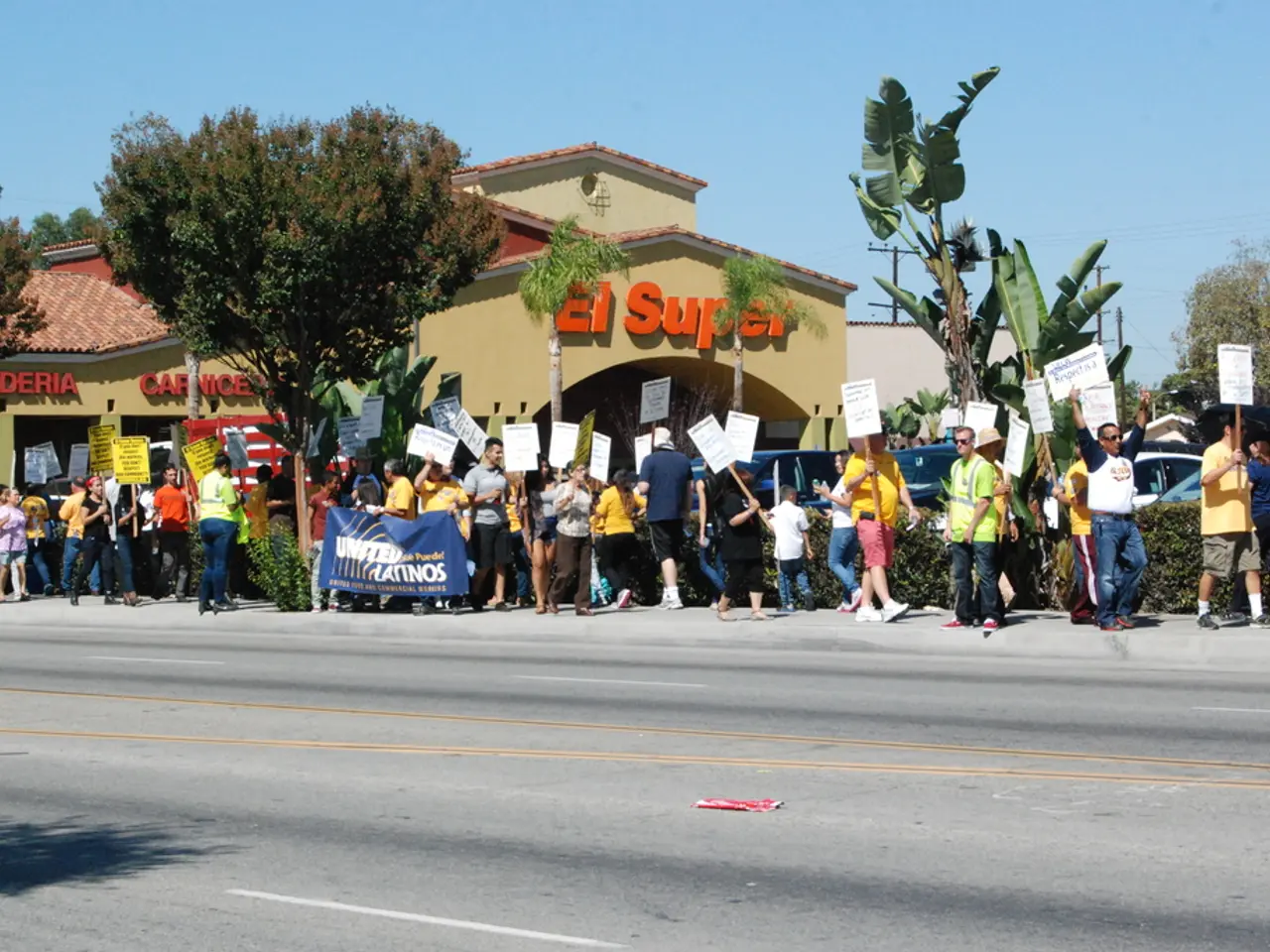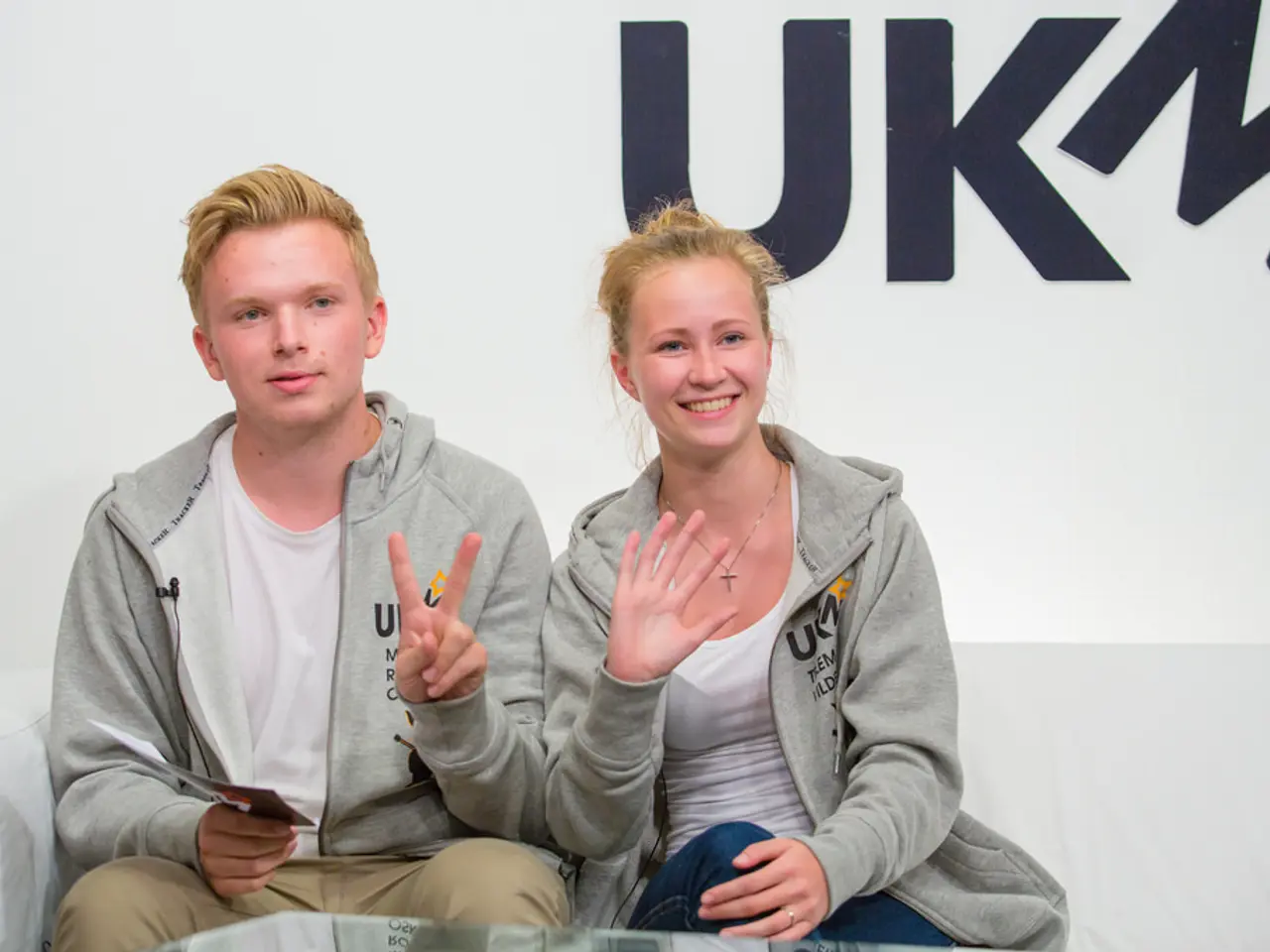The Job Market Entry Timeframe Stretches Over a Minimum of Twelve Months
The German labor market is currently experiencing a period of stagnation and softening, according to recent data and economic forecasts. In May 2025, employment figures remained virtually unchanged, with roughly 45.8 million persons employed, marking a slight seasonal increase of 0.2%. Unemployment, however, remains relatively high, holding at 6.3% in June, approaching the symbolic 3 million unemployed mark.
A key factor contributing to this situation is the 10% annual decline in job vacancies since 2023. Companies' hesitancy to hire, particularly in consumer-dependent sectors like retail and autos, is a significant concern. The planned minimum wage increases to €14.60 by 2027 also put pressure on corporate budgets, leading to cost-cutting and delayed investments.
Despite these challenges, there are signs of a turning point ahead. The ifo Institute predicts a slight upturn in employment in the coming months, aligning with signs of a gradual economic recovery. The Bundesbank, however, expects economic stagnation in 2025 due to international trade uncertainties but forecasts stronger GDP growth for 2026 and 2027, supported by increased government spending on defense and infrastructure.
State Secretary Leonie Gebers in the Federal Ministry of Labor has emphasized the importance of ensuring that as many young people as possible find apprenticeship positions, as 396,000 have registered for one since October 2024, representing a 13,000 increase from the same time last year. However, the current number of registered apprenticeship positions stands at 455,000, 25,000 fewer than last year.
The labor market continues to show signs of economic weakness, with unemployed individuals finding it very difficult to secure new jobs. Unemployment has been increasing for three years, and the long-standing labor market paradox persists: skilled workers are scarce, yet it is very difficult for unemployed people to find a new job.
International tensions, such as the blockade of the Strait of Hormuz, could put pressure on the world economy and affect the labor market. The labor market researcher's expectations are that the mark of three million unemployed will be exceeded this summer.
Andrea Nahles, chairman of the Federal Employment Agency, does not expect improvement until autumn. However, she sees potential in encouraging more women to work part-time as a means to address the labor market challenges. Germany ranks among the least working countries in Europe, with only the Netherlands performing worse in terms of hours worked.
Even if an economic upswing comes earlier than expected, the effects on the labor market would be noticeable with some delay. Thus, while immediate labor market improvement is limited, medium-term prospects appear cautiously optimistic provided international economic tensions ease and demand picks up, helping to stabilize and eventually increase employment and job vacancies.
- In an attempt to counteract the economic stagnation, some unemployed individuals might consider participating in recreational activities like sports to maintain their physical and mental well-being during this challenging period.
- As the situation improves, potential employer incentives could include providing company sports teams or fitness programs to attract and retain employees, particularly in the face of a competitive labor market.








